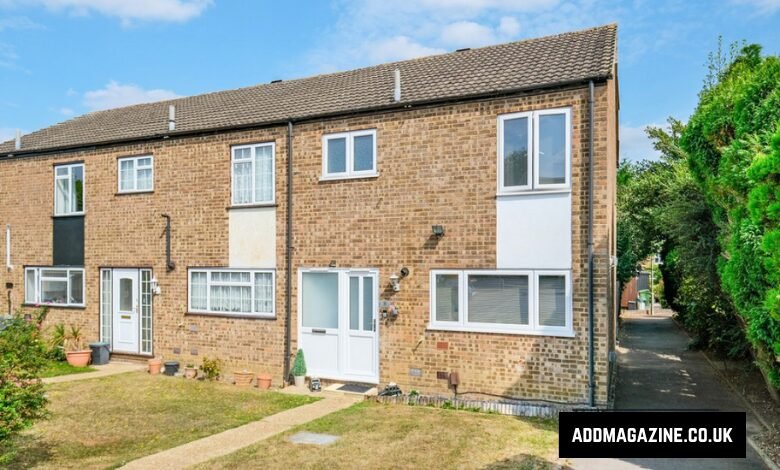If you are thinking about selling your property, one of the first questions that comes to mind is: how much is my home worth? The answer to that question can vary, which is why many people turn to estate agents in Orpington for a professional valuation. Understanding how your home’s value is determined can help you make better decisions when it comes to marketing your property, setting a realistic asking price, and ultimately achieving a successful sale.
Why Property Valuation Matters
A property valuation is not just a figure; it’s a critical insight that shapes your entire selling strategy. It sets the tone for your entire selling journey. If your home is valued too high, it may sit on the market for longer than expected, discouraging potential buyers and resulting in price reductions later on. On the other hand, if it’s undervalued, you could be leaving money on the table.
An accurate valuation ensures your property is marketed competitively and appeals to the right audience from the outset. In a market as diverse as Orpington—where period family homes, modern flats, and suburban semis all sit side by side—getting the price right is crucial.
What Do Estate Agents Look At?
When carrying out a valuation, estate agents don’t just pluck a figure out of the air. They rely on experience, local knowledge, and hard data. Here are the main factors they consider:
1. Location and Neighbourhood
The age-old rule of property—location, location, location—still rings true. An agent will assess how desirable your area is. For example, being within walking distance of Orpington station, which offers direct connections into central London, often boosts a property’s appeal. The catchment area for well-regarded schools, proximity to local shops, and access to green spaces like Goddington Park can all add value.
2. Size and Layout
Square footage plays a big part in valuations, but layout matters too. A well-designed two-bedroom flat with spacious living areas can be more attractive than a larger property with awkwardly divided rooms. Estate agents will consider both the size and the usability of your space.
3. Condition and Presentation
The overall state of your property is key. A well-maintained home with modern kitchens and bathrooms is likely to command a higher price. Conversely, if major works are needed—such as a new roof or rewiring—this will be reflected in the valuation. Hiring a home renovation contractor can help ensure these improvements are done efficiently and to a high standard, boosting your property’s overall appeal. Even cosmetic updates, like fresh paintwork and decluttering, can make a noticeable difference.
4. Comparable Sales (or “Comps”)
Agents will look at recent sales of similar homes in your area, sometimes called “comparables” or “comps”. These provide a benchmark for what buyers are willing to pay in the current market. For example, if a three-bedroom semi on your street sold last month for £500,000, that figure will influence the valuation of your property.
5. Market Conditions
The wider property market also has a role to play. If demand is high and supply is limited, you may be able to achieve a premium price. Conversely, in a slower market, realistic pricing becomes even more important to attract buyers.
The Valuation Process Step by Step
If you have never had your property valued before, you may be wondering what to expect. Here’s a typical process when working with estate agents in Orpington:
1. Booking the Appointment
You contact your chosen estate agent and arrange a convenient time. Most agents offer this service free of charge.
2. The Property Visit
An agent visits your home, takes measurements, inspects each room, and makes notes on condition and features.
3. Discussion
They will ask about improvements you’ve made, such as extensions, loft conversions, or new double glazing. These details can add to your home’s value.
4. Research
After the visit, the agent analyses local market data, including recent sales and current listings.
5. Valuation Figure
The agent provides you with an estimated value, often supported by evidence of similar properties. They may also suggest an asking price range depending on your preferred selling strategy.
6. Advice on Next Steps
Many agents will advise on small changes that could help increase your home’s appeal, such as staging tips or minor repairs.
The Difference Between Market Value and Asking Price
It’s worth noting that a valuation figure is not always the same as your asking price. The valuation represents what the agent believes your home is realistically worth. The asking price, however, may be pitched slightly higher to allow room for negotiation.
A good estate agent will explain this distinction clearly and ensure your asking price aligns with your goals, whether that’s a quick sale or achieving the maximum possible figure.
Common Misconceptions About Valuations
Many homeowners come to the process with certain assumptions, but not all of them are accurate. Here are a few myths worth dispelling:
“My home is worth what I paid for it, plus what I’ve spent.”
Renovations don’t always add full value to a property. While a new kitchen can make your home more attractive, the return on investment varies.
“Online calculators are just as good as agents.”
Automated valuation tools can give a ballpark figure, but they lack the nuance of a professional who has walked through your property and understands your neighbourhood.
“If one agent values higher, I should go with them.”
Choosing an agent solely because they promise the highest price can backfire. Overvalued homes risk sitting unsold. Trustworthiness and market knowledge are more important.
Tips for Homeowners Preparing for a Valuation
If you want to get the best possible result from your valuation, a little preparation goes a long way. Consider these steps:
Tidy Up: First impressions matter. A clean, clutter-free home helps agents see its true potential.
Highlight Improvements: Make a note of upgrades, such as new appliances, extensions, or energy efficiency features, so the agent doesn’t miss them.
Do Minor Repairs: Fix leaky taps, squeaky doors, or peeling paint. Small issues can give the impression of neglect.
Think About Timing: If possible, choose a season when your home looks its best—spring and early summer often work well.
Why Local Knowledge is Crucial
One of the biggest advantages of working with estate agents in Orpington is their in-depth understanding of the local market. National online agents may have broad data, but they lack the intimate knowledge of neighbourhood trends, upcoming developments, and what buyers in the area are currently looking for.
For example, an Orpington-based agent will know that properties close to St Olave’s Grammar School or within easy reach of Orpington High Street often attract higher levels of interest. This kind of insight can make a significant difference in setting the right price.
Final Thoughts
A property valuation is the foundation of a successful home sale. It’s not about guessing or hoping—it’s about analysing real data, understanding buyer behaviour, and applying local expertise. By working with experienced estate agents in Orpington, you can gain a clear picture of what your home is worth and how to position it effectively in the market.
Remember: the valuation is just the starting point. How you prepare your home, the strategy you choose, and the agent you work with will all influence the final outcome. With the right approach, you can maximise your property’s value and move forward with confidence in your selling journey.




